Science
-
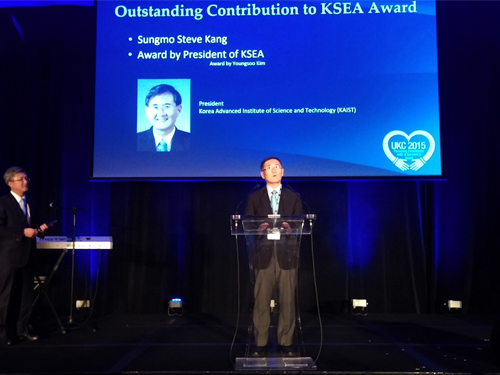 President Steve Kang of KAIST Receives the Outstanding Contribution Award from the Korean-American Scientists and Engineers Association
The Korean-American Scientists and Engineers Association (KSEA), a non-profit Korean professional organization based in the United States with over 6,000 registered members, bestowed upon President Steve Kang of KAIST the 2015 Outstanding Contribution Award.
The award is presented to a person who has made significant contributions to the development of KSEA.
The award ceremony took place during the 2015 US-Korea Conference on Science, Technology, and Entrepreneurship (UKC), which was held on July 30, 2015, at the Hyatt Regency Hotel in Atlanta, Georgia.
The UKC is the flagship conference of KSEA, which takes place every year, and covers science, engineering, technology, industry, entrepreneurship, and leadership. It attracts more than 1,200 participants from the US and Korea. The UKC 2015 was held on July 29-August 1, 2015.
President Kang has participated in UKC conferences over the past few years as a plenary speaker, addressing major issues in science and technology for both nations, and provided generous support for the activities of UKC and KSEA. He also promoted discussions and exchanges of professional knowledge in his field, microelectronics, by organizing fora and symposia.
He addressed the UKC 2015 as a plenary speaker with a speech entitled “Pursuing Excellence with a Servant’s Heart.” President Kang said that good leadership should bring out synergistic contributions from all constituents and achieve excellence under all circumstances. He mentioned one example of good leadership, known as humble leadership, and explained how such leadership played an important role in the development of scientific breakthroughs, such as the world’s premier high-end microprocessor chip sets first produced by his team under extremely high pressure.
2015.08.05 View 9353
President Steve Kang of KAIST Receives the Outstanding Contribution Award from the Korean-American Scientists and Engineers Association
The Korean-American Scientists and Engineers Association (KSEA), a non-profit Korean professional organization based in the United States with over 6,000 registered members, bestowed upon President Steve Kang of KAIST the 2015 Outstanding Contribution Award.
The award is presented to a person who has made significant contributions to the development of KSEA.
The award ceremony took place during the 2015 US-Korea Conference on Science, Technology, and Entrepreneurship (UKC), which was held on July 30, 2015, at the Hyatt Regency Hotel in Atlanta, Georgia.
The UKC is the flagship conference of KSEA, which takes place every year, and covers science, engineering, technology, industry, entrepreneurship, and leadership. It attracts more than 1,200 participants from the US and Korea. The UKC 2015 was held on July 29-August 1, 2015.
President Kang has participated in UKC conferences over the past few years as a plenary speaker, addressing major issues in science and technology for both nations, and provided generous support for the activities of UKC and KSEA. He also promoted discussions and exchanges of professional knowledge in his field, microelectronics, by organizing fora and symposia.
He addressed the UKC 2015 as a plenary speaker with a speech entitled “Pursuing Excellence with a Servant’s Heart.” President Kang said that good leadership should bring out synergistic contributions from all constituents and achieve excellence under all circumstances. He mentioned one example of good leadership, known as humble leadership, and explained how such leadership played an important role in the development of scientific breakthroughs, such as the world’s premier high-end microprocessor chip sets first produced by his team under extremely high pressure.
2015.08.05 View 9353 -
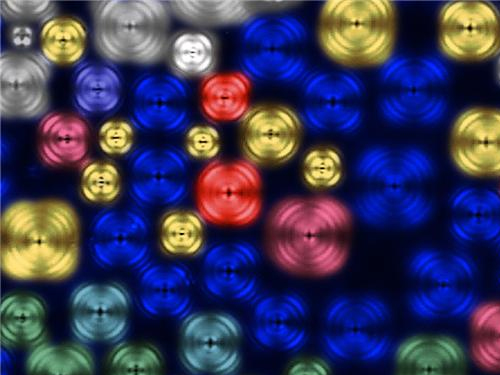 Dr. Se-Jung Kim Receives the Grand Prize at the International Photo and Image Contest on Light
Dr. Se-Jung Kim of the Physics Department at KAIST received the Grand Prize at the 2015 Photo and Image Contest of the International Year of Light and Light-based Technologies.
The United Nations has designated the year 2015 as the International Year of Light and Light-based Technologies.
The Optical Society of Korea celebrated the UN’s designation by hosting an international photo and image contest on the theme of light and optics related technology.
Dr. Kim presented a photo of images taken from a liquid crystal, which was entitled “A Micro Pinwheel.” She took pictures of liquid crystal images with a polarizing microscope and then colored the pictures. The liquid crystal has self-assembled circle domain structures, and each domain can form vortex optics. Her adviser for the project is Professor Yong-Hoon Cho of the Physics Department.
Her work was exhibited during the annual conference of the Optical Society of Korea, which was held on July 13-15, 2015 at Gyeong-Ju Hwabaek International Convention Center. It will also be exhibited at the National Science Museum in Gwacheon and the Kim Dae-Jung Convention Center in Gwangju.
Picture: A Micro Pinwheel
2015.07.31 View 12825
Dr. Se-Jung Kim Receives the Grand Prize at the International Photo and Image Contest on Light
Dr. Se-Jung Kim of the Physics Department at KAIST received the Grand Prize at the 2015 Photo and Image Contest of the International Year of Light and Light-based Technologies.
The United Nations has designated the year 2015 as the International Year of Light and Light-based Technologies.
The Optical Society of Korea celebrated the UN’s designation by hosting an international photo and image contest on the theme of light and optics related technology.
Dr. Kim presented a photo of images taken from a liquid crystal, which was entitled “A Micro Pinwheel.” She took pictures of liquid crystal images with a polarizing microscope and then colored the pictures. The liquid crystal has self-assembled circle domain structures, and each domain can form vortex optics. Her adviser for the project is Professor Yong-Hoon Cho of the Physics Department.
Her work was exhibited during the annual conference of the Optical Society of Korea, which was held on July 13-15, 2015 at Gyeong-Ju Hwabaek International Convention Center. It will also be exhibited at the National Science Museum in Gwacheon and the Kim Dae-Jung Convention Center in Gwangju.
Picture: A Micro Pinwheel
2015.07.31 View 12825 -
 International Undergraduate Conference ICISTS-KAIST 2015 and ICISTS-KAIST Public Colloquium Held on August 3, 2015 at KAIST
The ICISTS-KAIST 2015, an international conference organized by a student organization called the International Conference for the Integration of Science, Technology, and Society at KAIST, was held from August 3rd to 7th at the KAIST campus and ICC Hotel in Daejeon. This year’s conference theme was “Shaping the Future.” Over 300 undergraduate students from more than 20 countries joined the event. The conference offered opportunities to explore emerging issues in science and technology, particularly in the fields of robotics, medicine, and science communication.
Vitalic Buterin, a rising scientist who received the 2014 World Technology Award for his development of the Ethereum Project, and Alan Irwin, a renowned scholar in science communication at the Copenhagen Business School in Denmark, were invited as keynote speakers. The list of other speakers included Stefan Lorenz Sorgner, the Director and Co-founder of the Beyond Humanism Network; Wendell Wallach, a scholar at Yale University's Interdisciplinary Center for Bioethics; and Hideto Nakajima, a professor at the Department of History, Philosophy and Social Studies of Science and Technology at Tokyo Institute of Technology.
As part of the ICISTS-KAIST 2015, ICISTS also hosted a public colloquium on August 5, 2015 at the Science Hall in Daejeon National Science Museum. Ko San, the Director of TIDE Institute; Hyo-Joon Woo, the Chief Executive Officer of Fransen; and Dong-Il Jung, the Chief Executive Officer of iDrone participated as the speakers.
2015.07.29 View 9303
International Undergraduate Conference ICISTS-KAIST 2015 and ICISTS-KAIST Public Colloquium Held on August 3, 2015 at KAIST
The ICISTS-KAIST 2015, an international conference organized by a student organization called the International Conference for the Integration of Science, Technology, and Society at KAIST, was held from August 3rd to 7th at the KAIST campus and ICC Hotel in Daejeon. This year’s conference theme was “Shaping the Future.” Over 300 undergraduate students from more than 20 countries joined the event. The conference offered opportunities to explore emerging issues in science and technology, particularly in the fields of robotics, medicine, and science communication.
Vitalic Buterin, a rising scientist who received the 2014 World Technology Award for his development of the Ethereum Project, and Alan Irwin, a renowned scholar in science communication at the Copenhagen Business School in Denmark, were invited as keynote speakers. The list of other speakers included Stefan Lorenz Sorgner, the Director and Co-founder of the Beyond Humanism Network; Wendell Wallach, a scholar at Yale University's Interdisciplinary Center for Bioethics; and Hideto Nakajima, a professor at the Department of History, Philosophy and Social Studies of Science and Technology at Tokyo Institute of Technology.
As part of the ICISTS-KAIST 2015, ICISTS also hosted a public colloquium on August 5, 2015 at the Science Hall in Daejeon National Science Museum. Ko San, the Director of TIDE Institute; Hyo-Joon Woo, the Chief Executive Officer of Fransen; and Dong-Il Jung, the Chief Executive Officer of iDrone participated as the speakers.
2015.07.29 View 9303 -
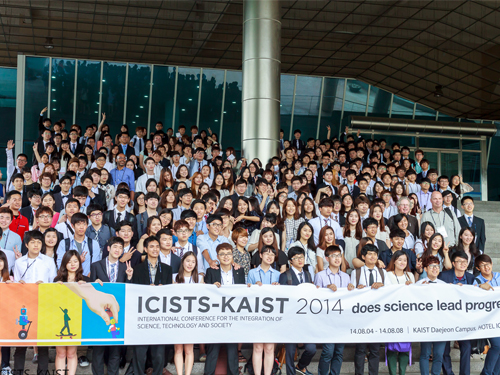 KAIST Undergraduates Organize the Largest Interdisciplinary Conference in Asia
The largest interdisciplinary conference in Asia hosted by KAIST undergraduates for students around the world will be held in KAIST. The organizing committee of International Conference for the Integration of Science, Technology and Society (ICISTS) will hold the ICISTS-KAIST 2015 in KAIST and Hotel ICC from August 3-7, 2015, with around 300 Korean and international participants.
ICISTS-KAIST was established in 2005 to provide an annual platform for students to discuss the integration and the convergence of science, technology and society, regardless of their academic background.
This year’s theme is "Shaping the Future" and the topics for the conference are robotics, medicine, and science communication.
The keynote speakers are Vitalic Buterin, the winner of the World Technology Award in 2014 for the co-creation and invention of Ethereum and Alan Irwin, a well-known scholar of science, technology and society as well as the Dean of Research at the Copenhagen Business School in Denmark.
Other notable speakers include Adam Marcus, a professor of Hematology and Medical Oncology, Emory University School of Medicine; Stefan Lorenz Sorgner, the Director and co-founder of Beyond Humanism Network; Hideto Nakajima, a professor in the Department of History, Philosophy and Social Studies of Science and Technology at Tokyo Institute of Technology; Wendell Wallach, a lecturer at the Yale University Interdisciplinary Center for Bioethics; Jinil Lee, a professor in the Division of Biological Science and Technology at Yonsei University; and Sangwook Kim, an editor of APCTP web journal Crossroads and a professor in the Department of Physics Education, Pusan National University.
Last year, more than 300 students from 50 different countries attended the ICISTS-KAIST 2014 as delegates to exchange their thoughts and ideas on science, technology, and society.
To register for the event, please visit www.icists.org.
2015.07.14 View 10040
KAIST Undergraduates Organize the Largest Interdisciplinary Conference in Asia
The largest interdisciplinary conference in Asia hosted by KAIST undergraduates for students around the world will be held in KAIST. The organizing committee of International Conference for the Integration of Science, Technology and Society (ICISTS) will hold the ICISTS-KAIST 2015 in KAIST and Hotel ICC from August 3-7, 2015, with around 300 Korean and international participants.
ICISTS-KAIST was established in 2005 to provide an annual platform for students to discuss the integration and the convergence of science, technology and society, regardless of their academic background.
This year’s theme is "Shaping the Future" and the topics for the conference are robotics, medicine, and science communication.
The keynote speakers are Vitalic Buterin, the winner of the World Technology Award in 2014 for the co-creation and invention of Ethereum and Alan Irwin, a well-known scholar of science, technology and society as well as the Dean of Research at the Copenhagen Business School in Denmark.
Other notable speakers include Adam Marcus, a professor of Hematology and Medical Oncology, Emory University School of Medicine; Stefan Lorenz Sorgner, the Director and co-founder of Beyond Humanism Network; Hideto Nakajima, a professor in the Department of History, Philosophy and Social Studies of Science and Technology at Tokyo Institute of Technology; Wendell Wallach, a lecturer at the Yale University Interdisciplinary Center for Bioethics; Jinil Lee, a professor in the Division of Biological Science and Technology at Yonsei University; and Sangwook Kim, an editor of APCTP web journal Crossroads and a professor in the Department of Physics Education, Pusan National University.
Last year, more than 300 students from 50 different countries attended the ICISTS-KAIST 2014 as delegates to exchange their thoughts and ideas on science, technology, and society.
To register for the event, please visit www.icists.org.
2015.07.14 View 10040 -
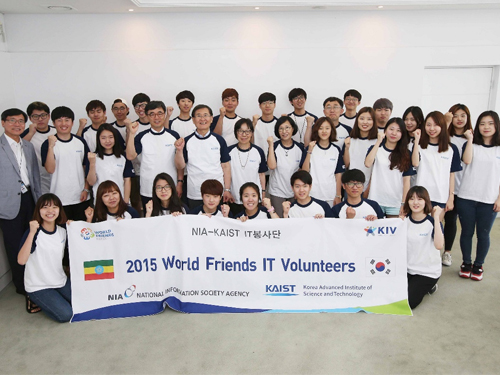 KAIST Undergraduate Students Volunteer in Ethiopia
World Friends (WF), one of the undergraduate student clubs at KAIST, offer students opportunities to volunteer in underdeveloped regions and countries. This year the World Friends team travels to Ethiopia from July 9 to August 17, 2015.
The aim of this trip is to help Ethiopian students fill gaps in their knowledge of information technology and encourage KAIST students build leadership skills through volunteer activities. Twenty-eight students will make the trip.
KAIST students will visit the Addis Ababa Institute of Technology and the Adama Science and Technology University, as well as some local high and elementary schools in Addis Ababa, where they will run computer classes related to the basics of information technology such as C Language, Java Programming, Photoshop, MS Office, and Windows.
The volunteers will offer Adama Science and Technology University students an advanced computer course to prepare them to participate in the ACM-ICPC, an international computer programming competition for university students.
KAIST students will also introduce Korean culture to Ethiopian students including K-pop, Korean cuisine and fashion, Korean language lessons, and traditional Korean art.
The Dean of Student Affairs and Policy at KAIST, Professor Young-Hee Kim said, “I hope the students from two very different cultures will cherish this opportunity to interact with each other and contribute to narrowing down the regional disparities in the IT field.”
2015.07.10 View 9730
KAIST Undergraduate Students Volunteer in Ethiopia
World Friends (WF), one of the undergraduate student clubs at KAIST, offer students opportunities to volunteer in underdeveloped regions and countries. This year the World Friends team travels to Ethiopia from July 9 to August 17, 2015.
The aim of this trip is to help Ethiopian students fill gaps in their knowledge of information technology and encourage KAIST students build leadership skills through volunteer activities. Twenty-eight students will make the trip.
KAIST students will visit the Addis Ababa Institute of Technology and the Adama Science and Technology University, as well as some local high and elementary schools in Addis Ababa, where they will run computer classes related to the basics of information technology such as C Language, Java Programming, Photoshop, MS Office, and Windows.
The volunteers will offer Adama Science and Technology University students an advanced computer course to prepare them to participate in the ACM-ICPC, an international computer programming competition for university students.
KAIST students will also introduce Korean culture to Ethiopian students including K-pop, Korean cuisine and fashion, Korean language lessons, and traditional Korean art.
The Dean of Student Affairs and Policy at KAIST, Professor Young-Hee Kim said, “I hope the students from two very different cultures will cherish this opportunity to interact with each other and contribute to narrowing down the regional disparities in the IT field.”
2015.07.10 View 9730 -
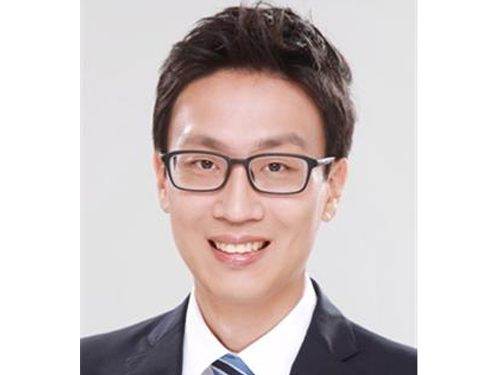 Professor Kyoungsik Yu Receives the Young IT Engineer Award from IEEE and IEIE of Korea
Professor Kyoungsik Yu of KAIST’s Department of Electrical Engineering is the recipient of this year’s Young IT (Information Technology) Engineer Award that was co-hosted by the Institute of Electrical and Electronics Engineers (IEEE), the Institute of Electronics Engineers of Korea (IEIE), and Haedong Science Culture Foundation in Korea. The award was presented on June 22, 2015 at The Ramada Plaza Jeju Hotel on Jeju Island, Korea.
The Young IT Engineer Award is given to emerging scientists who have made significant contributions to the advancement of technology, society, environment, and creative education.
Professor Yu's main research interests are IT, energy, and imaging through miniaturization and integration of optoelectronic devices. His contribution to academic and technological development is reflected in his publication of more than 100 papers in international journals and conferences, which were cited over 2,200 times.
Professor Yu said, “I’m honored to receive this award and am encouraged by it. I also find the award meaningful because the United Nations has designated this year as the “International Year of Light and Light-based Technologies,” the field I have been involved in as a researcher.”
In addition to Korea, the IEEE has jointly hosted and presented this award to researchers in countries such as Chile, Ecuador, Peru, Singapore, and Italy.
2015.06.22 View 14998
Professor Kyoungsik Yu Receives the Young IT Engineer Award from IEEE and IEIE of Korea
Professor Kyoungsik Yu of KAIST’s Department of Electrical Engineering is the recipient of this year’s Young IT (Information Technology) Engineer Award that was co-hosted by the Institute of Electrical and Electronics Engineers (IEEE), the Institute of Electronics Engineers of Korea (IEIE), and Haedong Science Culture Foundation in Korea. The award was presented on June 22, 2015 at The Ramada Plaza Jeju Hotel on Jeju Island, Korea.
The Young IT Engineer Award is given to emerging scientists who have made significant contributions to the advancement of technology, society, environment, and creative education.
Professor Yu's main research interests are IT, energy, and imaging through miniaturization and integration of optoelectronic devices. His contribution to academic and technological development is reflected in his publication of more than 100 papers in international journals and conferences, which were cited over 2,200 times.
Professor Yu said, “I’m honored to receive this award and am encouraged by it. I also find the award meaningful because the United Nations has designated this year as the “International Year of Light and Light-based Technologies,” the field I have been involved in as a researcher.”
In addition to Korea, the IEEE has jointly hosted and presented this award to researchers in countries such as Chile, Ecuador, Peru, Singapore, and Italy.
2015.06.22 View 14998 -
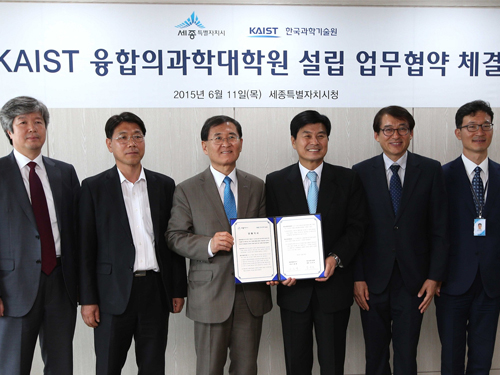 KAIST and Sejong City Goverment Agree to Establish a Graduate School of Medical Science and Engineering
KAIST and the government of Sejong City will cooperate to establish a graduate school of medical science and engineering. On June 11, 2015, President Steve Kang of KAIST and Mayor Choon-Hee Lee of Sejong City signed a memorandum of understanding at the city hall of Sejong to establish the school.
Under the agreement, the two organizations will work out details to establish the graduate school in Sejong on such issues as administrative assistance, financial support, curriculum development, and the creation of an environment conducive to the growth of medical science.
President Kang said, “Once this graduate school is established, KAIST will be able to offer Korea and the world top-notch researchers in the field of medical science. I have high hopes that the school will produce high-impact research breakthroughs and lead in the advancement of interdisciplinary studies in biotechnology.”
In the picture below, President Steve Kang of KAIST (third from the left) holds the signed memorandum of understanding with Mayor Choon-Hee Lee of Sejong (fourth from the left).
2015.06.16 View 7984
KAIST and Sejong City Goverment Agree to Establish a Graduate School of Medical Science and Engineering
KAIST and the government of Sejong City will cooperate to establish a graduate school of medical science and engineering. On June 11, 2015, President Steve Kang of KAIST and Mayor Choon-Hee Lee of Sejong City signed a memorandum of understanding at the city hall of Sejong to establish the school.
Under the agreement, the two organizations will work out details to establish the graduate school in Sejong on such issues as administrative assistance, financial support, curriculum development, and the creation of an environment conducive to the growth of medical science.
President Kang said, “Once this graduate school is established, KAIST will be able to offer Korea and the world top-notch researchers in the field of medical science. I have high hopes that the school will produce high-impact research breakthroughs and lead in the advancement of interdisciplinary studies in biotechnology.”
In the picture below, President Steve Kang of KAIST (third from the left) holds the signed memorandum of understanding with Mayor Choon-Hee Lee of Sejong (fourth from the left).
2015.06.16 View 7984 -
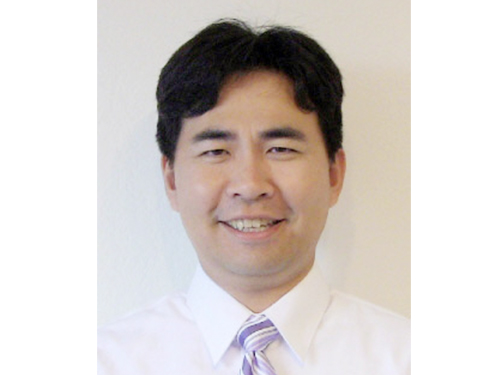 Professor Sung Yong Kim Presents a Keynote Speech at the International Ocean Color Science Meeting (IOCS) 2015
Professor Sung Yong Kim of the Mechanical Engineering Department at KAIST delivered a keynote speech at the International Ocean Color Science Meeting (IOCS) 2015 held in San Francisco on June 15-18, 2015. His speech was entitled “Research and Applications Using Sub-mesoscale GOCI (Geostationary Ocean Color Imager) Data.”
The IOCS, organized by the International Ocean Color Coordinating Group (IOCCG), is a community consultation meeting providing communication and collaboration between space agencies and the ocean color community, building strong ties among international representatives of the ocean color communities, and providing a forum for discussion and the evolution of community thinking on a range of issues.
Professor Kim was recognized for his contribution towards the development of remote exploration of sub-mesoscale processes including eddies, fronts, and environmental fluid dynamics.
He also attended the 26th General Assembly of the International Union of Geodesy and Geophysics (IUGG) in Prague, the Czech Republic, on June 22, 2015 and gave a presentation on the sub-mesoscale eddies circulation research.
2015.06.12 View 11634
Professor Sung Yong Kim Presents a Keynote Speech at the International Ocean Color Science Meeting (IOCS) 2015
Professor Sung Yong Kim of the Mechanical Engineering Department at KAIST delivered a keynote speech at the International Ocean Color Science Meeting (IOCS) 2015 held in San Francisco on June 15-18, 2015. His speech was entitled “Research and Applications Using Sub-mesoscale GOCI (Geostationary Ocean Color Imager) Data.”
The IOCS, organized by the International Ocean Color Coordinating Group (IOCCG), is a community consultation meeting providing communication and collaboration between space agencies and the ocean color community, building strong ties among international representatives of the ocean color communities, and providing a forum for discussion and the evolution of community thinking on a range of issues.
Professor Kim was recognized for his contribution towards the development of remote exploration of sub-mesoscale processes including eddies, fronts, and environmental fluid dynamics.
He also attended the 26th General Assembly of the International Union of Geodesy and Geophysics (IUGG) in Prague, the Czech Republic, on June 22, 2015 and gave a presentation on the sub-mesoscale eddies circulation research.
2015.06.12 View 11634 -
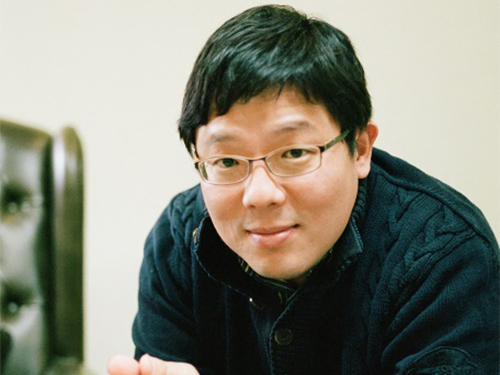 Science and Technology Policy Professor Chihyung Jeon Awarded Rachel Carson Fellowship
KAIST Graduate School of Science and Technology Policy Professor Chihyung Jeon has been awarded the Rachel Carson Fellowship 2015-2016.
Rachel Carson Center for Environment and Society is a research center for environmental humanities and social sciences, supported by the German Federal Ministry of Education and Research. It was founded by Ludwig-Maximilians-Universität, Munich, Germany and the Deutsches Museum as a joint initiative in 2009.
Rachel Carson Center supports researches in humanities and social sciences on the interactions between the environment and the society, following the footsteps of Rachel Cason, who raised awareness on the chemical environmental damage and started global environmental movement through her published book “Silent Spring” in 1962.
The center is awarding Rachel Carson Fellowships to established researchers to fund their writing and promote exchange of research. This year, 31 fellowships were awarded.
Professor Jeon will conduct research on "A Dredged Nation: The Four Rivers Restoration Project and the Envirotechnical Transformation of South Korea" and will also hold an additional post of International Curatorial Fellow at the Deutsches Museum.
2015.06.11 View 12277
Science and Technology Policy Professor Chihyung Jeon Awarded Rachel Carson Fellowship
KAIST Graduate School of Science and Technology Policy Professor Chihyung Jeon has been awarded the Rachel Carson Fellowship 2015-2016.
Rachel Carson Center for Environment and Society is a research center for environmental humanities and social sciences, supported by the German Federal Ministry of Education and Research. It was founded by Ludwig-Maximilians-Universität, Munich, Germany and the Deutsches Museum as a joint initiative in 2009.
Rachel Carson Center supports researches in humanities and social sciences on the interactions between the environment and the society, following the footsteps of Rachel Cason, who raised awareness on the chemical environmental damage and started global environmental movement through her published book “Silent Spring” in 1962.
The center is awarding Rachel Carson Fellowships to established researchers to fund their writing and promote exchange of research. This year, 31 fellowships were awarded.
Professor Jeon will conduct research on "A Dredged Nation: The Four Rivers Restoration Project and the Envirotechnical Transformation of South Korea" and will also hold an additional post of International Curatorial Fellow at the Deutsches Museum.
2015.06.11 View 12277 -
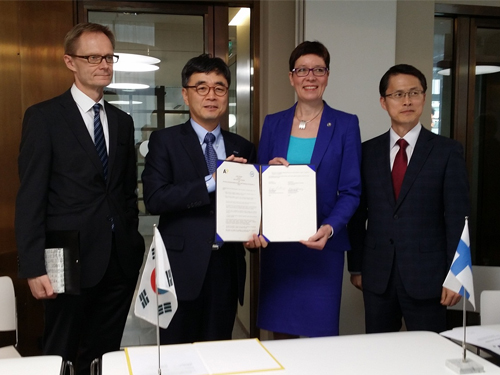 KAIST to Kick-Start the Exchange of Young Researchers with Northern European Universities
KAIST promotes research exchange and cooperation with three universities in Northern Europe.
KAIST has signed a letter of intent (LOI) for the mutual exchange of young researchers and cooperation to collaborate with KTH Royal Institute of Technology and Lund University, both based in Sweden on June 2, 2015, and with Aalto University in Finland on June 4, 2015.
This LOI was the result of the cooperative projects of Korea-Sweden and Korea-Finland Joint Committees on Science and Technology supervised by the Ministry of Science, ICT and Future Planning of Korea.
As agreed in the LOI, KAIST will conduct joint research projects with the three universities by providing students and researchers with opportunities to visit each other through internship programs and workshops and by sharing information on education and research.
Sung-Hyon Mayeng, the Associate Vice President of the International Relations Office at KAIST, said, “It’s an encouraging sign that universities and governments recognize the importance of increasing exchanges among academic and research communities. Expecting more vibrant relationships to be formed between KAIST and the three northern European universities in coming years, I hope that today’s agreement becomes a good basis to spur technological innovations that will not only benefit the regions but also the world.”
Established in 1827, the KTH Royal Institute of Technology is the largest and oldest technical university in Sweden, accounting for one-third of the nation’s technical research and engineering education capacity at university level. The university offers education and research programs from natural sciences to all branches of engineering including architecture, industrial management, and urban planning. According to the QS World University Rankings in 2014, KTH Royal Institute of Technology ranked 27th in engineering and 1st in Northern Europe.
Lund University, Sweden, is one of the oldest and most prestigious universities in northern Europe, consistently ranking among the world’s top 100 universities. In particular, its biological sciences and engineering have shown great strength, placing within the top 60 universities by the Times Higher Education (THE) World University Rankings. The university also receives the largest amount of research funding from the Swedish government.
Aalto University in Finland was created as a merger of three leading Finnish universities: the Helsinki University of Technology (established 1849), the Helsinki School of Economics (established 1904), and the University of Art and Design Helsinki (established 1871). The university nurtures the close collaborations across science, business, and arts to foster multi-disciplinary education and research.
2015.06.04 View 10326
KAIST to Kick-Start the Exchange of Young Researchers with Northern European Universities
KAIST promotes research exchange and cooperation with three universities in Northern Europe.
KAIST has signed a letter of intent (LOI) for the mutual exchange of young researchers and cooperation to collaborate with KTH Royal Institute of Technology and Lund University, both based in Sweden on June 2, 2015, and with Aalto University in Finland on June 4, 2015.
This LOI was the result of the cooperative projects of Korea-Sweden and Korea-Finland Joint Committees on Science and Technology supervised by the Ministry of Science, ICT and Future Planning of Korea.
As agreed in the LOI, KAIST will conduct joint research projects with the three universities by providing students and researchers with opportunities to visit each other through internship programs and workshops and by sharing information on education and research.
Sung-Hyon Mayeng, the Associate Vice President of the International Relations Office at KAIST, said, “It’s an encouraging sign that universities and governments recognize the importance of increasing exchanges among academic and research communities. Expecting more vibrant relationships to be formed between KAIST and the three northern European universities in coming years, I hope that today’s agreement becomes a good basis to spur technological innovations that will not only benefit the regions but also the world.”
Established in 1827, the KTH Royal Institute of Technology is the largest and oldest technical university in Sweden, accounting for one-third of the nation’s technical research and engineering education capacity at university level. The university offers education and research programs from natural sciences to all branches of engineering including architecture, industrial management, and urban planning. According to the QS World University Rankings in 2014, KTH Royal Institute of Technology ranked 27th in engineering and 1st in Northern Europe.
Lund University, Sweden, is one of the oldest and most prestigious universities in northern Europe, consistently ranking among the world’s top 100 universities. In particular, its biological sciences and engineering have shown great strength, placing within the top 60 universities by the Times Higher Education (THE) World University Rankings. The university also receives the largest amount of research funding from the Swedish government.
Aalto University in Finland was created as a merger of three leading Finnish universities: the Helsinki University of Technology (established 1849), the Helsinki School of Economics (established 1904), and the University of Art and Design Helsinki (established 1871). The university nurtures the close collaborations across science, business, and arts to foster multi-disciplinary education and research.
2015.06.04 View 10326 -
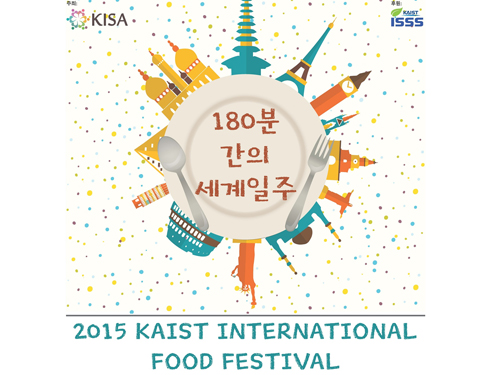 KAIST International Food Festival
The KAIST International Students Association (KISA) hosted the 2015 International Food Festival in front of Creative Learning Building, KAIST, on May 22, 2015.
This was the 11th International Food Festival for KAIST where international students introduced food from their home countries to strengthen cultural exchanges with Korean students. This year’s festival was the biggest international festival in Daejeon in which around 500 students and staff from KAIST, Chungnam National University (CNU), the University of Science & Technology (UST), and the public participated.
KAIST’s President Steve Kang opened the festival with a welcoming speech, followed by congratulatory speeches by CNU President Sang-Chul Jung and UST President Un-Woo Lee.
The first section of the event was the food festival where around 40 kinds of food from ten countries including Kenya, Kazakhstan, India, and Turkey were presented. Students from each country offered cooking demonstrations in booths, and participants purchased the food.
Cheryl Wanderi, a Kenyan student who recently received a Master’s degree from KAIST’s Department of Bio and Brain Engineering last February said, “I am delighted to introduce Mandazi, a Kenyan donut, to not only Korean students but also other international students.”
The second half of the event consisted of cultural performances from different countries. There were eight teams performing including an Indonesian traditional Saman dance team, a Kazakh group that performed on traditional instruments, and an Azerbaijani K-POP dance team.
Sung-Hyon Myaeng, the Associate Vice President of KAIST’s International Office, said, “Despite their busy lives, students from three different universities planned this event to get to know each other. I hope international students and Korean students can come together and enjoy the festival.”
Edrick Kwek, the President of KISA, said, “This food festival is an event showing the cultural diversity of KAIST in the most splendid way.”
2015.05.27 View 11440
KAIST International Food Festival
The KAIST International Students Association (KISA) hosted the 2015 International Food Festival in front of Creative Learning Building, KAIST, on May 22, 2015.
This was the 11th International Food Festival for KAIST where international students introduced food from their home countries to strengthen cultural exchanges with Korean students. This year’s festival was the biggest international festival in Daejeon in which around 500 students and staff from KAIST, Chungnam National University (CNU), the University of Science & Technology (UST), and the public participated.
KAIST’s President Steve Kang opened the festival with a welcoming speech, followed by congratulatory speeches by CNU President Sang-Chul Jung and UST President Un-Woo Lee.
The first section of the event was the food festival where around 40 kinds of food from ten countries including Kenya, Kazakhstan, India, and Turkey were presented. Students from each country offered cooking demonstrations in booths, and participants purchased the food.
Cheryl Wanderi, a Kenyan student who recently received a Master’s degree from KAIST’s Department of Bio and Brain Engineering last February said, “I am delighted to introduce Mandazi, a Kenyan donut, to not only Korean students but also other international students.”
The second half of the event consisted of cultural performances from different countries. There were eight teams performing including an Indonesian traditional Saman dance team, a Kazakh group that performed on traditional instruments, and an Azerbaijani K-POP dance team.
Sung-Hyon Myaeng, the Associate Vice President of KAIST’s International Office, said, “Despite their busy lives, students from three different universities planned this event to get to know each other. I hope international students and Korean students can come together and enjoy the festival.”
Edrick Kwek, the President of KISA, said, “This food festival is an event showing the cultural diversity of KAIST in the most splendid way.”
2015.05.27 View 11440 -
 KAIST Hosts the Wearable Computer Contest 2015
Deadlines for Prototype Contest by May 30, 2015 and August 15 for Idea Contest
KAIST will hold the Wearable Computer Contest 2015 in November, which will be sponsored by Samsung Electronics Co., Ltd.
Wearable computers have emerged as next-generation mobile devices, and are gaining more popularity with the growth of the Internet of Things. KAIST has introduced wearable devices such as K-Glass 2, a smart glass with augmented reality embedded. The Glass also works on commands by blinking eyes.
This year’s contest with the theme of “Wearable Computers for Internet of Things” is divided into two parts: the Prototype Competition and Idea Contest.
With the fusion of information technology (IT) and fashion, contestants are encouraged to submit prototypes of their ideas by May 30, 2015. The ten teams that make it to the finals will receive a wearable computer platform and Human-Computer Interaction (HCI) education, along with a prize of USD 1,000 for prototype production costs. The winner of the Prototype Contest will receive a prize of USD 5,000 and an award from the Minister of Science, ICT and Future Planning (MSIP) of the Republic of Korea.
In the Idea Contest, posters containing ideas and concepts of wearable devices should be submitted by August 15, 2015. The teams that make it to the finals will have to display a life-size mockup in the final stage. The winner of the contest will receive a prize of USD 1,000 and an award from the Minister of MSIP.
Any undergraduate or graduate student in Korea can enter the Prototype Competition and anyone can participate in the Idea Contest.
The chairman of the event, Hoi-Jun Yoo, a professor of the Department of Electrical Engineering at KAIST, noted:
“There is a growing interest in wearable computers in the industry. I can easily envisage that there will be a new IT world where wearable computers are integrated into the Internet of Things, healthcare, and smart homes.”
More information on the contest can be found online at http://www.ufcom.org.
Picture: Finalists in the last year’s contest
2015.05.11 View 9297
KAIST Hosts the Wearable Computer Contest 2015
Deadlines for Prototype Contest by May 30, 2015 and August 15 for Idea Contest
KAIST will hold the Wearable Computer Contest 2015 in November, which will be sponsored by Samsung Electronics Co., Ltd.
Wearable computers have emerged as next-generation mobile devices, and are gaining more popularity with the growth of the Internet of Things. KAIST has introduced wearable devices such as K-Glass 2, a smart glass with augmented reality embedded. The Glass also works on commands by blinking eyes.
This year’s contest with the theme of “Wearable Computers for Internet of Things” is divided into two parts: the Prototype Competition and Idea Contest.
With the fusion of information technology (IT) and fashion, contestants are encouraged to submit prototypes of their ideas by May 30, 2015. The ten teams that make it to the finals will receive a wearable computer platform and Human-Computer Interaction (HCI) education, along with a prize of USD 1,000 for prototype production costs. The winner of the Prototype Contest will receive a prize of USD 5,000 and an award from the Minister of Science, ICT and Future Planning (MSIP) of the Republic of Korea.
In the Idea Contest, posters containing ideas and concepts of wearable devices should be submitted by August 15, 2015. The teams that make it to the finals will have to display a life-size mockup in the final stage. The winner of the contest will receive a prize of USD 1,000 and an award from the Minister of MSIP.
Any undergraduate or graduate student in Korea can enter the Prototype Competition and anyone can participate in the Idea Contest.
The chairman of the event, Hoi-Jun Yoo, a professor of the Department of Electrical Engineering at KAIST, noted:
“There is a growing interest in wearable computers in the industry. I can easily envisage that there will be a new IT world where wearable computers are integrated into the Internet of Things, healthcare, and smart homes.”
More information on the contest can be found online at http://www.ufcom.org.
Picture: Finalists in the last year’s contest
2015.05.11 View 9297